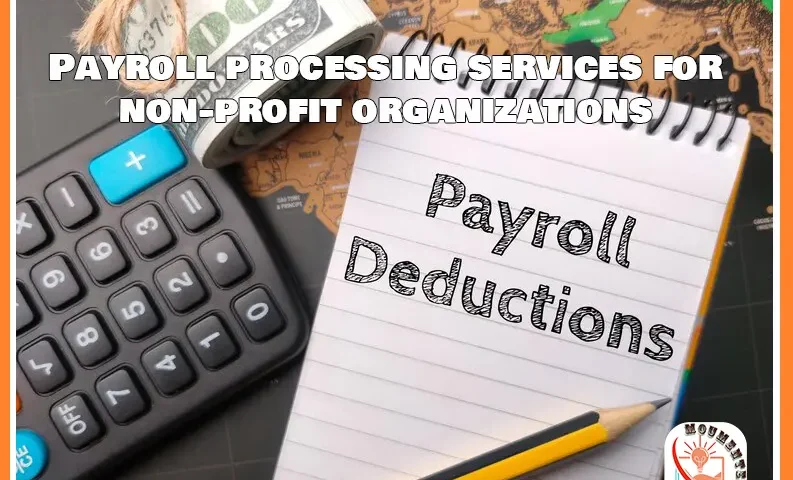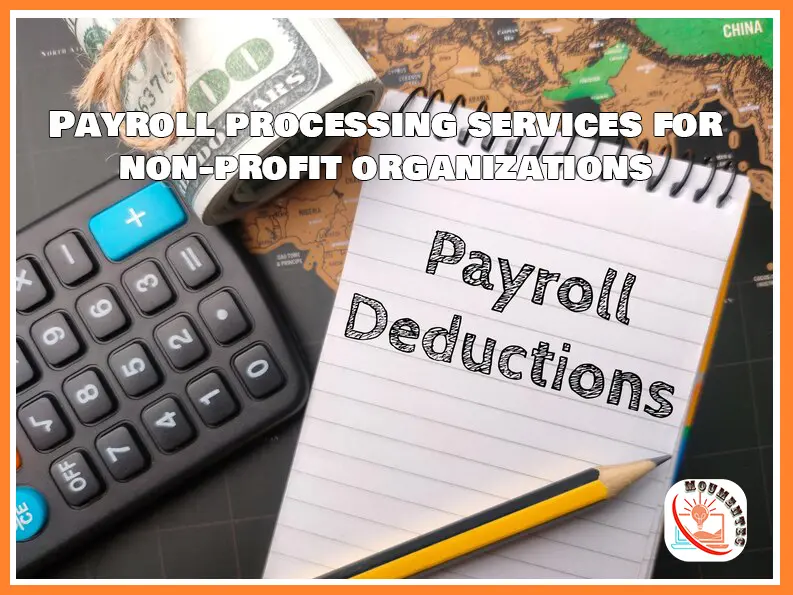
Introduction
As a nonprofit organization, managing your payroll can be a complex and time-consuming task. From tracking employee hours to calculating taxes and benefits, there are numerous aspects of payroll processing that require careful attention. In this article, we will explore the benefits of outsourcing payroll processing services for nonprofits. We will cover the key considerations when selecting a provider, the services they offer, and how to ensure a smooth transition.
You may also be interested in reading Gold IRA Company in the World: A Thorough Guide
Why Outsource Payroll processing services for Nonprofits?
Outsourcing payroll processing services can provide a range of benefits for nonprofit organizations, including:
1. Time Savings
Managing payroll is a time-consuming task that can take up a significant amount of resources. Outsourcing payroll processing services allows nonprofit organizations to focus on their core mission and activities, rather than administrative tasks.
2. Cost Savings
Outsourcing payroll processing can also provide cost savings for nonprofits. By eliminating the need for in-house staff and software, nonprofits can reduce their payroll processing expenses.
3. Compliance and Accuracy
Payroll processing can be complex and requires a high level of accuracy to ensure compliance with tax and labor laws. By outsourcing payroll processing services, nonprofits can rely on the expertise of professionals who specialize in payroll processing, ensuring compliance and accuracy.
Selecting a Payroll Processing Service Provider
When selecting a payroll processing services provider for your nonprofit organization, there are several key considerations to keep in mind:
1. Expertise and Experience
It is essential to choose a payroll processing services provider with expertise and experience in the nonprofit sector. Nonprofit payroll processing has unique requirements, including compliance with tax laws and regulations specific to nonprofits.
2. Services Offered
Payroll processing service providers offer a range of services, including payroll tax calculation and filing, direct deposit, and employee self-service portals. It is essential to choose a provider that offers the services your nonprofit organization requires.
3. Pricing
Payroll processing services providers typically charge a flat fee per payroll cycle or a percentage of your total payroll expenses. It is essential to choose a provider that offers transparent and competitive pricing.
4. Customer Support
It is essential to choose a payroll processing service provider that offers excellent customer support. The provider should be available to answer questions and provide assistance when needed.
Services Offered by Payroll Processing Service Providers

Payroll processing service providers offer a range of services designed to simplify payroll processing for nonprofit organizations. These services include:
1. Payroll Processing
Payroll processing service providers handle all aspects of payroll processing, including employee time tracking, calculating paychecks, and distributing payments.
2. Tax Filing and Compliance
Payroll processing service providers are responsible for calculating and filing payroll taxes, ensuring compliance with federal, state, and local tax laws.
3. Direct Deposit
Payroll processing service providers offer direct deposit services, allowing employees to receive their paychecks directly into their bank accounts.
4. Employee Self-Service
Many payroll processing service providers offer employee self-service portals, allowing employees to access their pay stubs, W-2 forms, and other payroll-related information.
Ensuring a Smooth Transition
Transitioning to a payroll processing service provider can be a complex process. To ensure a smooth transition, nonprofit organizations should:
1. Define Payroll Processing Requirements
Before selecting a payroll processing service provider, nonprofit organizations should define their payroll processing requirements. This includes the number of employees, the frequency of pay periods, and any unique payroll requirements.
2. Choose a Provider and Review Contract
Once payroll processing requirements have been defined, nonprofit organizations can choose a payroll processing service provider. Before signing a contract, it is essential to review the terms and conditions carefully.
3. Provide Employee Information
Nonprofit organizations should provide employee information to the payroll processing service provider, including employee names, addresses, and social security numbers.
4. Establish a Payroll Schedule
Nonprofit organizations should establish a payroll schedule with the payroll processing service provider. This includes the frequency of pay periods and the dates for processing and distributing paychecks.
5. Test Payroll Processing
Before going live, nonprofit organizations should test the payroll processing system to ensure that it meets their requirements and operates smoothly.
Conclusion
Outsourcing payroll processing services for nonprofit organizations can provide significant benefits, including time and cost savings, compliance and accuracy, and improved efficiency. When selecting a payroll processing services provider, nonprofit organizations should consider factors such as expertise and experience, services offered, pricing, and customer support. By following the steps outlined in this article, nonprofit organizations can ensure a smooth transition to a payroll processing service provider and simplify their payroll processing operations.
FAQs
- How much does it cost to outsource payroll processing for nonprofit organizations? The cost of outsourcing payroll processing services for nonprofit organizations can vary depending on the provider and the services required. Typically, providers charge a flat fee per payroll cycle or a percentage of total payroll expenses.
- Can a nonprofit organization switch payroll processing service providers mid-year? Yes, nonprofit organizations can switch payroll processing service providers mid-year. However, it is essential to ensure a smooth transition to minimize disruption to payroll operations.
- Is it necessary to choose a payroll processing service provider with expertise in the nonprofit sector? Yes, it is essential to choose a payroll processing service provider with expertise and experience in the nonprofit sector. Nonprofit payroll processing has unique requirements, including compliance with tax laws and regulations specific to nonprofits.
- What payroll processing services do nonprofit organizations typically require? Nonprofit organizations typically require payroll processing, tax filing and compliance, direct deposit, and employee self-service portals.
- How can nonprofit organizations ensure a smooth transition to a payroll processing service provider? Nonprofit organizations can ensure a smooth transition to a payroll processing service provider by defining payroll processing requirements, choosing a provider and reviewing the contract, providing employee information, establishing a payroll schedule, and testing payroll processing before going live.





